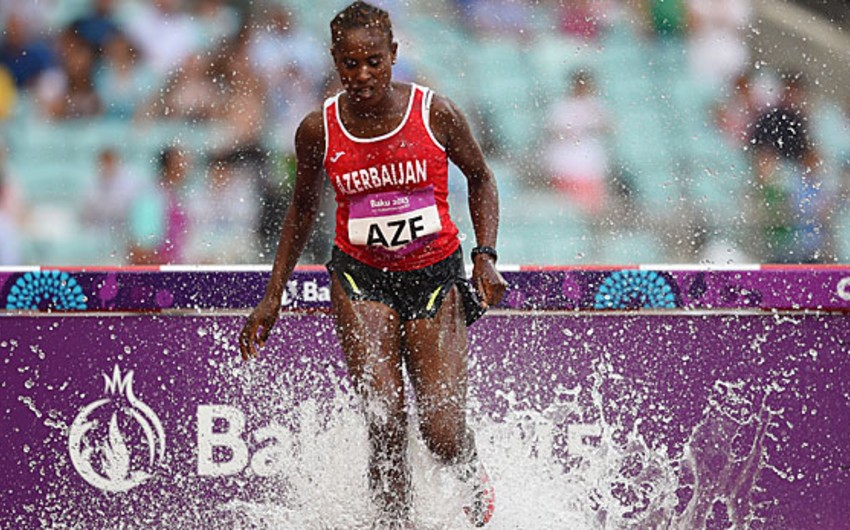Baku. 27 June. REPORT.AZ/ The European Olympic Committees (EOC) announced today that Chaltu Beji of Azerbaijan has been found to have committed an Anti-Doping Rule Violation under EOC Anti-Doping Rules applicable to the European Games, and has been suspended from participation at the Games, Report informs citing EOC press-service.
Ms Beji, who represented Azerbaijan in the 3,000m steeplechase, provided a urine sample on 21 June 2015 in association with her participation in the 2015 European Games held in Baku, as part of the EOC’s in-competition testing programme. That sample was sent to the WADA-accredited laboratory in Moscow, Russia, for analysis. The sample was found to contain osterine, which is a Prohibited Substance under section S1 (ANABOLIC AGENTS) of the 2015 WADA List of Prohibited Substances and Prohibited Methods, and is therefore also prohibited under the EOC Anti-Doping Rules applicable to the Baku 2015 European Games. Ms Beji requested that the B-sample be analysed. Following analysis at the Moscow laboratory, the B-sample was also found to contain osterine.
Ms Beji was therefore charged with an Anti-Doping Rule Violation, and it was determined by the EOC Executive Committee on the recommendation of the EOC’s Committee for Legal, Eligibility, Disciplinary and Doping Matters that she is suspended from participation in the European Games and that she is disqualified from the 3,000m steeplechase which took place on 21 June. This disqualification will not affect the result of the Team Athletics event. Further anti-doping procedures will be conducted by the competent international organisations.
The Baku 2015 European Games Anti-Doping Programme has comprehensive, intelligent and robust anti-doping procedures that apply to all athletes competing at the European Games. The athletes are tested for substances prohibited by the World Anti-Doping Agency and, upon finding that an Anti-Doping Rule Violation has been committed, sanctions are imposed in accordance with the requirements of the EOC Anti Doping Rules applicable to the Baku 2015 European Games.


 https://static.report.az/photo/f950b4fd-9d7a-4e7b-ae3d-089acf318cb5.jpg
https://static.report.az/photo/f950b4fd-9d7a-4e7b-ae3d-089acf318cb5.jpg

